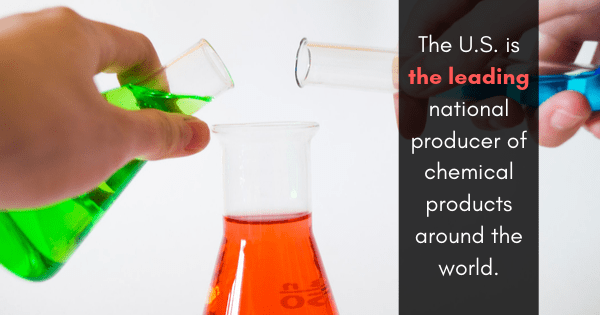
The U.S. is the leading national producer of chemical products around the world. The vast majority of laboratories in the country use most of these chemicals. The types and amounts of chemicals used vary from lab to lab based on whether the lab focuses on compound production, research, basic acid digestion, and so on.
Unfortunately, there have been frequent reports of incidents and accidents involving the handling and storage of chemicals, especially when it comes to radiolabeled compounds. The devastation caused during some of these accidents can be great. It’s the reason people must remain diligent when it comes to the handling of radiolabeled materials. Otherwise, problems are bound to strike.
This article will focus on seven rules for handling and storing all compounds that have undergone radiolabeling.
Create a Chemical Hygiene Plan
Every organization that deals with radiolabeled compounds must develop a solid strategy for making sure that the chemical purity of these products is preserved. Preserving clean room standards is especially essential in achieving this objective.
The strategy also needs to enhance the safety of staff. Refer to the elements specified by the Occupational Safety and Health Administration (OSHA) on what needs to be included in the hygiene plan of a plant that deals with chemicals.
Take Training Seriously
Investing in the security of your workers and community is a lot more than just a budgetary line item. It’s a responsibility that you have.
To create the safest possible environment, offer regular training to each of your employees who comes in contact with radiolabeled compounds. Ensure that the training covers how to handle, package, and store chemicals. Emergency and evacuation procedures should be part of the training as well.
Standardize Procedures
Each chemical has certain unique aspects when it comes to safe handling and storage. However, there are a lot of steps that apply to all radiolabeled compounds. To make things simple for your team when it comes to safety procedures, start with the common steps. For instance, insist on workers always wearing safety equipment before they handle ICN radiochemicals. Also, make it a norm for staff to inspect all containers before they put chemicals in them in order to meet GMP standards.
By reinforcing the basics, you make it easier for your workers to follow any additional unique requirements for specific chemicals.
Provide Top Quality Safety Gear
One of the most effective ways of keeping your employees safe is providing the right protective gear for handling radiolabeled compounds. OSHA has a list of specifications regarding the equipment that workers should have.
According to OSHA, the safety gear provided should meet the standards provided by the American National Standards Institute (ANSI). Ensure you provide sufficient training and instructions regarding the usage of safety gear. More importantly, make sure that your workers use the gear at all times.
Create Ample Ventilation
Radiolabeled compounds can be volatile and may cause problems, even when the chemicals are at low concentrations. To stay on the safe side, install adequate HVAC systems. Make sure that the HVAC systems are working properly at all times.
You may also consider adding additional fans if necessary. The goal should always be to meet the indoor air quality standards set out by OSHA.
Practice Spill Response
Even with the best laid plans, accidents can still happen. Make sure that your team knows what to do in case there’s a chemical spill. Have well-documented procedures that your team should follow, and practice spill-response drills. Make sure that everyone takes these drills seriously, and hold them at frequent intervals.
Every laboratory that handles radiolabeled compounds needs an effective strategy for handling and storing chemicals to stay efficient, organized and safe. Without such a strategy, it’s only a matter of time before the staff finds themselves picking through ashes and rubble. Even dedicating a few minutes going through safety guidelines on a regular basis can go a long way in averting major incidents.
